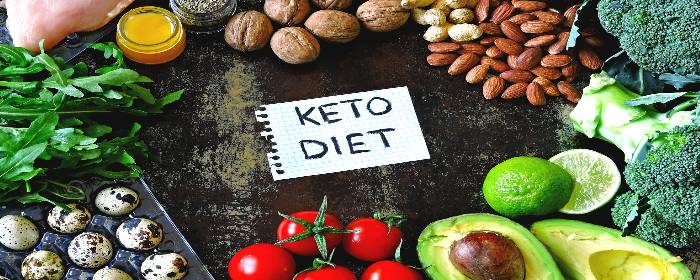
by admin | Nov 15, 2019 | Adipose, Heart Failure, Mesenchymal Stem Cells, Stem Cell Research, Stem Cell Therapy
A myocardial infarction, commonly known as a heart attack, occurs when blood flow through the coronary arteries is blocked. A heart attack usually happens to people with atherosclerotic coronary heart disease, which narrows one or more of the coronary arteries. A blood clot becomes lodged in the narrowed artery, preventing blood from reaching the heart muscle. Because the heart needs a virtually constant supply of oxygen-rich blood to survive, an interruption in blood flow to the heart can quickly cause muscle cells to die. There has been much talk in the medical community of using stem cells to rebuild the heart after a heart attack.
Dead heart muscle cells cannot help the heart pump blood. Thus, people who suffer a heart attack are often left with “weak” hearts. Instead of strongly squeezing blood out of the heart to the rest of the body, a larger portion of the blood remains in the heart (i.e. reduced ejection fraction). People who have had a heart attack that reduces ejection fraction commonly develop a condition known as congestive heart failure.
People with congestive heart failure often have difficult lives. Congestive heart failure patients periodically experience exacerbations that require hospitalization. They are put on restrictive diets; their salt and fluid intakes are limited. They must also take several different medications to help the heart pump blood through the arteries to the body and keep fluid levels in the body low. These medications do not heal or replace dead heart muscle cells. Instead, they make the remaining cells work harder (or decrease resistance in the arteries, or help the body eliminate fluid through urination).
What is needed is a way to regenerate dead heart muscle cells. Fortunately, several research groups are working on ways to use stem cells to regenerate heart muscle cells so that heart attack patients can regain heart muscle function.
There have been at least 11 clinical trials studying the effects of stem cells on patients with myocardial infarction. The trials show that stem cell infusion into the vein, the coronary artery, or the heart muscle itself is safe and well-tolerated by patients. Notably among the studies, patients with acute myocardial infarction who received allogeneic human mesenchymal cells intravenously had a better ejection fraction, better heart structure, and better lung function after six months than those who received a placebo. In the APOLLO trial, patients with acute myocardial infarction who received adipose-derived mesenchymal cells had half the dead heart muscle cells than those who received a placebo (i.e. lesion volume was 50% lower in treated patients).
Phase III clinical trials are considered definitive (pivotal) evidence of benefit. In phase III C-CURE trial, patients with heart failure due to coronary artery disease received autologous mesenchymal cells (i.e. their own cells, specially prepared). Treated patients enjoyed significantly increased ejection fraction (heart-pumping ability) and better functional capacity and quality of life. Other Phase II clinical trials (ADVANCE, CONCERT-CHF, TRIDENT, POSEIDON-DCM) are ongoing.
These results are welcome news for patients who suffer—or will one day suffer—from a heart attack, an event that happens in 735,000 Americans every year.
Reference: Golpanian, S. et al. (2016). Rebuilding the Damaged Heart: Mesenchymal Stem Cells, Cell-Based Therapy, and Engineered Heart Tissue. Physiological Reviews. 2016 Jul; 96(3): 1127–1168

by admin | Apr 23, 2019 | Health Awareness
At one point or another, you’ve probably come across something about the “keto diet,” whether it’s a friend who’s lost weight on it or an article on the newsstand. Indeed, it appears that following ketogenic (keto for short) eating principles is the latest dieting fad which has taken the masses by storm. While it does have the potential to spur significant weight loss, however, it also carries certain risks. Here’s what you need to know before going keto.
What Is the Keto Diet?
At the most basic level, keto is a low-carb, high-fat approach to eating. It bears similarities to the Atkins diet and similar low-carb eating plans. Essentially, it requires dieters to drastically limit their intake of carbohydrates (which are found in everything from breads, pasta, and cereal products to fruit) and to replace them with fat. For those who follow the plan strictly, it means breaking down nutrition as follows:
- 75% fat
- 20% protein
- 5% carbohydrates
The average American diet consists of 50-65% of carbohydrates, so the keto diet requires a major dietary overhaul for most people. By making these changes, you’ll send your body into a different metabolic state known as ketosis.
What is Ketosis?
Ketosis is the process by which the body uses stored fat for energy. This occurs when there isn’t enough glucose to provide energy. As stored fat is burned, a buildup of acids known as ketones develop, which can supply the brain with energy. To determine whether they’ve reached ketosis, many individuals who pursue the diet use urine strips or blood pricks. Eventually, however, most people become able to recognize the feeling of being in ketosis.
Keto Meal Planning
Most variations of the keto diet require a strict, principled approach to eating in which high-fat foods like oils, butter, avocado, cheese, coconut, and nuts are used to satisfy the appetite. Non-starchy vegetables such as broccoli, asparagus, zucchini, peppers, and cucumbers, as well as leafy greens, are also permitted. Meats, eggs, and fish can be consumed regularly as well.
The list of restricted foods spans far and wide, however. Most fruits are not permitted, nor are grains of any type, heavily processed foods, alcohol, and milk, among many other foods and drinks.
Keto Diet Benefits
Weight loss is one of the main drivers that attracts people to the keto diet. More than 20 studies have supported low-carb eating approaches, indicating that reducing carbohydrate intake can help people lose weight. This is likely due to the fact that cutting carbs also requires you to nix simple, refined carbohydrates, which are typically caloric yet have little nutritional value.
It’s also suspected that the keto diet may help to control or prevent certain diseases, including epilepsy, metabolic syndrome, type 2 diabetes, obesity, dementia, Parkinson’s disease, polycystic ovarian syndrome, and certain types of cancer.
Despite its potential benefits, however, further research is still limited, especially in terms of long-term results. There are also certain risks all participants should consider before embarking on this diet.
Keto Diet Risks
One of the most notorious impacts of the diet is the “keto flu.” As the body adapts to this new eating approach, it experiences flu-like symptoms, including headaches and fatigue. Water is also lost early on, which can lead to dehydration – a potentially serious condition. It’s therefore critical to drink plenty of water, especially at first.
The diet is also difficult to stick with. Thus, while you may see results at first, it’s important to ask whether reducing carb intake so drastically is a practical long-term eating style you can maintain.
Additionally, a high-fat diet could lead you to take in too many saturated or trans fats, found in foods like red meat, cheese, butter, and poultry skin. These can cause “bad” cholesterol to spike and put you at risk for developing heart disease. Moreover, eliminating entire food groups can lead to unfavorable byproducts like kidney stones and constipation.
Ultimately, while the keto diet may be right for certain populations, it’s a good idea to have a talk with your doctor before you make the switch. By staying hydrated, limiting saturated and trans fats, and eating a healthy variety of keto-friendly foods, you may be able to find success with this approach.



 St. Petersburg, Florida
St. Petersburg, Florida
